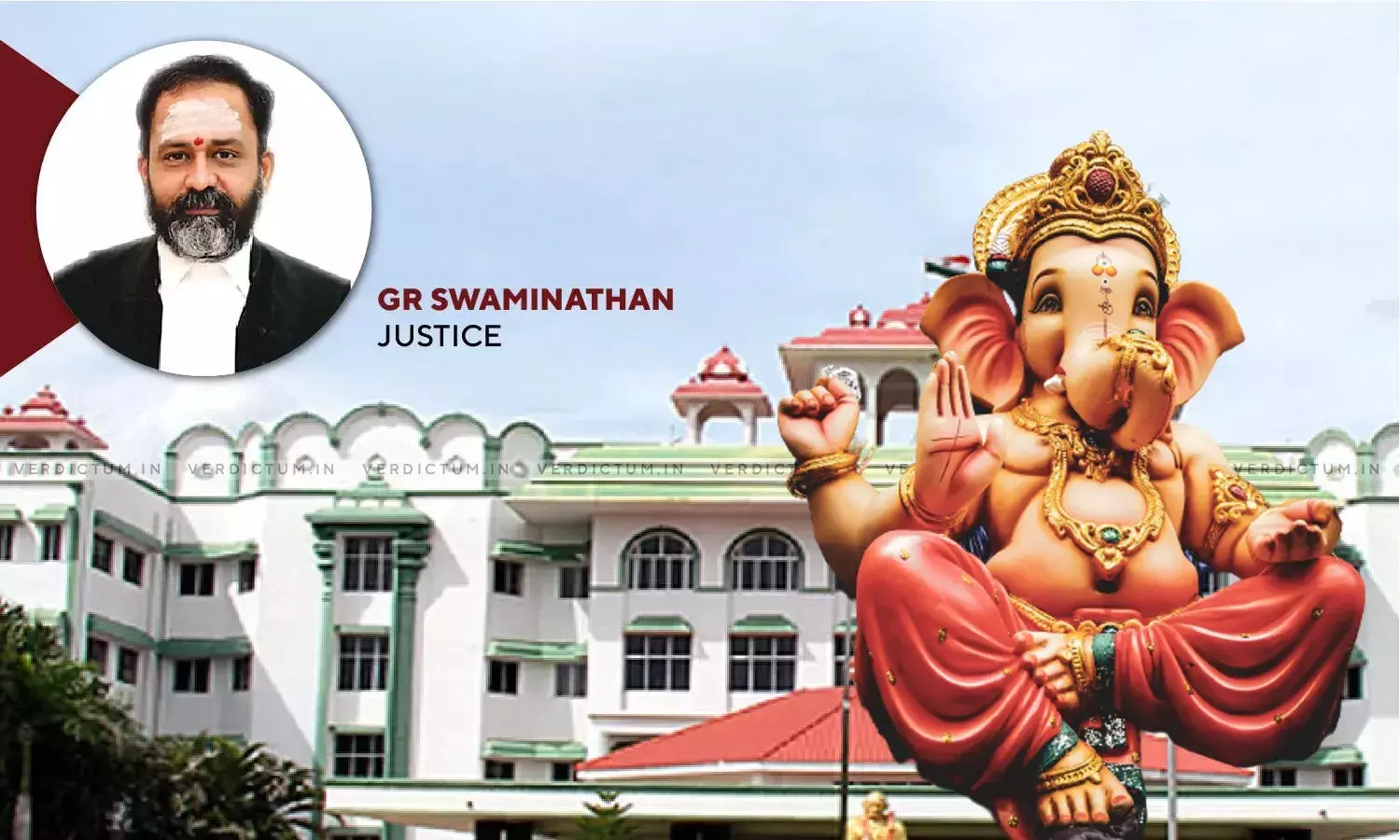Sale Of Ganesh Idols Even Made Of Plaster Of Paris Can't Be Prevented, Norms Apply Only To Immersion: Madras HC Warns State About Damages For Loss Of Business Caused

The Madras High Court has come to the rescue of Ganesha idol makers and sellers in Tamil Nadu who have been facing the wrath of the state for the last few days for alleged violation of environment norms.
A day before the Vishwakarma Jayanthi, who is particularly worshipped by artisans and workers as per the High Court, the High Court has held that the environmental norms that the state is trying to enforce will only apply to the immersion of idols and not to their sale, since sale may happen even for purposes other than immersion in public water bodies.
The High Court granted relief to a Rajasthan-based artisan from the actions of the Tamil Nadu Police, who were preventing him from selling Vinayaka idols, and held that an artisan is entitled to sell the articles he creates, a right guaranteed under Article 19(1)(g) of the Constitution of India. The Court described Lord Vinayaka as a symbol of luck.
The Bench of Justice G.R. Swaminathan was dealing with a Writ Petition filed by a skilled artisan, known for his exquisite Lord Vinayaka idols, who was encountering difficulties at the hands of the State authorities by preventing the artisan from selling his idols that had already been made.
"If the idols are eco- friendly, they can be manufactured and sold and such activities cannot be stopped for any reason. If the police or the authorities indulge in any act of prevention, that would be rank illegality. They will have to answer if the aggrieved individual invokes public law remedy. Damages will have to be paid for the business loss caused", the Court observed.
Appearing for the Petitioner, Advocate V Ramasubbu submitted before the High Court that the artisan had borrowed a substantial sum and if he is unable to sell the idols, he will be financially ruined. The Petitioner prayed for forbearing the State Authorities from interfering with his rights. On the other hand, appearing for the Respondents, Government Advocate S.S.Madhavan submitted that the restriction on the artisan was related to the use of Plaster of Paris in the idols, which raised environmental concerns and led to a complaint from the local Village Administrative Officer.
Respondents also submitted that the police have not arrested the petitioner but they have only prevented the petitioner from selling the idols.
Highlighting the Petitioner's plight, the Bench observed, "Tomorrow the nation observes Vishwakarma jayanthi. Vishwakarma is particularly worshipped by artisans and workers. Vishwakarma is the supreme architect. It is ironic that the petitioner who is a Rajasthani artisan engaged in making Vinayaka idols is encountering difficulties at the hands of the authorities".
Further, commenting upon the idols that were seized by the Police, the High Court said in the order, "Lord Vinayaka symbolizes luck. He is worshipped by Hindus who believe that He will remove all obstacles. It was the great patriot Sri. Bal Gangadhar Tilak who organized Ganesh Chaturthi Processions. They have helped to unify the society by cutting across caste differences."
While noting that the right to organize Vinayakar Chaturthi processions is not the subject matter of this writ, the High Court held that using Plaster of Paris in idols was not illegal per se, but that immersion of such idols in water bodies posed environmental risks. To strike a balance between the petitioner's right to pursue his profession and environmental concerns, the Court directed the petitioner to maintain a register containing details of every purchaser of his idols, making these transactions open for inspection by the authorities.
The High Court observed that these measures ensure accountability and prevent unauthorized idol immersions, thereby protecting the environment.
The Court further made it clear that while immersion of idols containing Plaster of Paris was not allowed, the sale of these idols could not be prevented by the authorities. The Order highlighted that the petitioner, as an artisan, was entitled to sell his handcrafted articles, a fundamental right under Article 19(1)(g) of the Constitution.
"The restraint on immersion is reasonable restriction. But prevention of sale would amount to violation of the petitioner's fundamental right. The respondents shall not prevent the petitioner from selling the idols made by him", ordered the High Court.
Cause Title: Prakash v. The District Collector [W.P(MD)No.22892 of 2023]
Click here to read/download the Order

